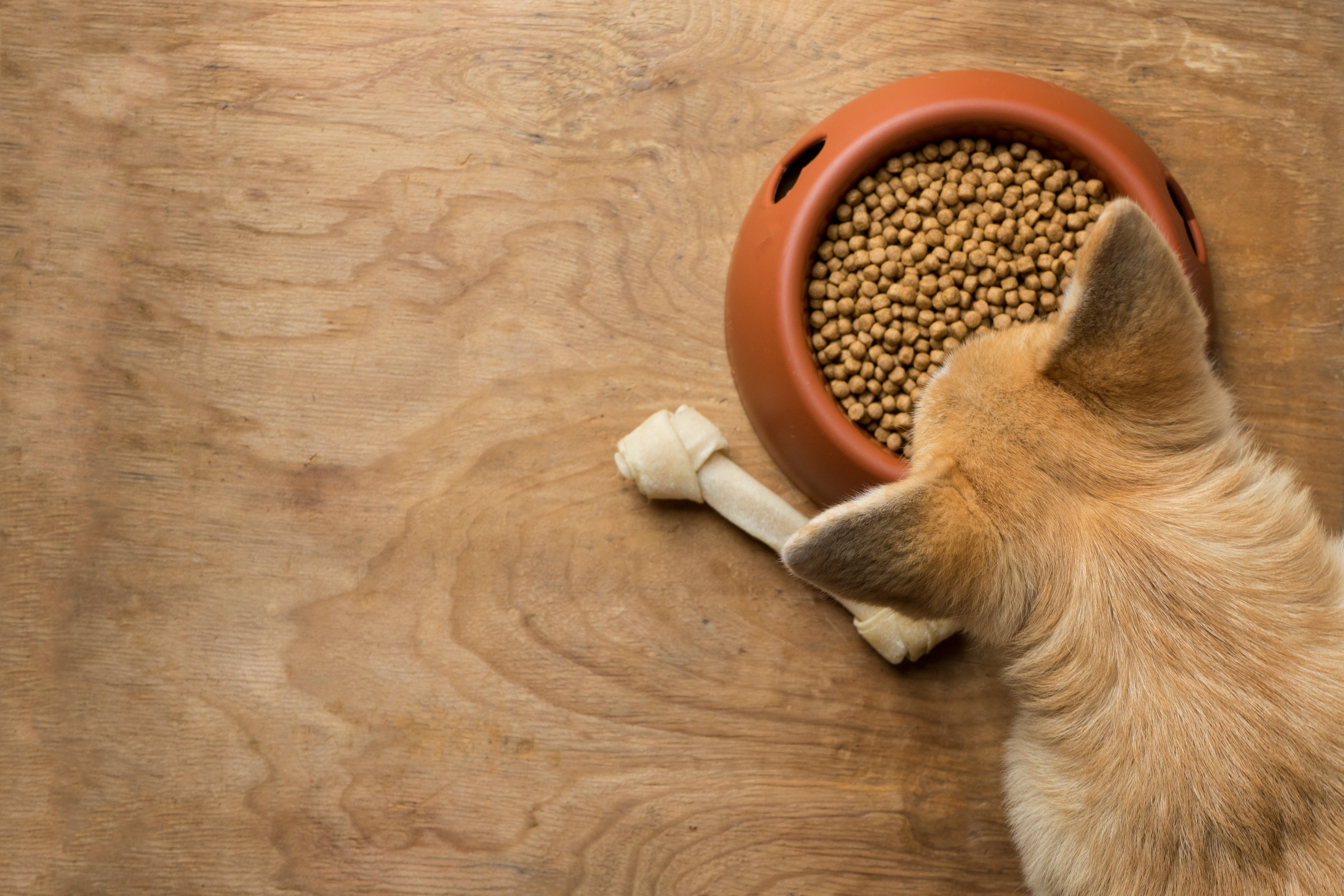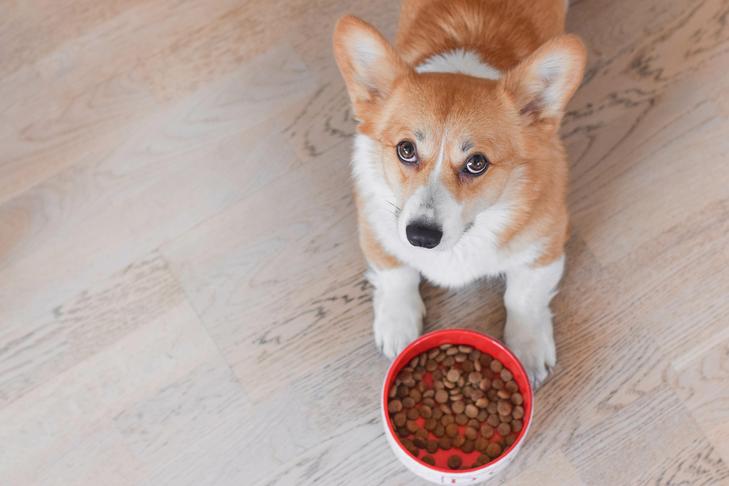
Must Your Canine Try Intermittent Fasting to Lose Weight?
[ad_1]
Diets are on a regular basis coming and going, and individuals are on a regular basis attempting new strategies to drop a couple of kilos. Whether or not or not it’s counting power, keto, or one factor comparable, one weight reduction plan you that’s been rising in recognition is intermittent fasting. Evaluation reveals that intermittent fasting is often protected for individuals and promotes common weight discount. In case your canine is chubby, it is attainable you will must take note of comparable diets which have labored as a way to help them shed a lot of kilos. Nevertheless is intermittent fasting for canines actually protected?
Since weight issues in canines locations them at larger hazard for effectively being points, equal to most cancers and coronary coronary heart sickness, some could take note of intermittent fasting as an selection to carry our canines at a healthful weight. Nevertheless even small modifications to our canines’ weight reduction plan can have penalties for his or her effectively being. Canines have specific dietary requirements which will change, counting on their age, train stage, and any underlying effectively being factors. Sooner than adjusting your canine’s weight reduction plan in any methodology, converse to your veterinarian.
Digestion and Fasting in Wolves and Canines
Wild wolves should hunt or scavenge for meals, and endure durations of fasting. On account of canine and wolves share genetic similarities, some people could suppose intermittent fasting could very effectively be protected for canines. Nonetheless, we don’t know rather a lot regarding the specific wolf populations that had been canines’ closest ancestors. Researchers suspect that canines are descendants of a now-extinct relative of the grey wolf, nevertheless when and the way in which this evolution occurred stays unclear. Regardless, canines and wolves is not going to be interchangable and won’t be the equivalent, so points like diets for one might be not protected for the alternative.
In distinction, as canines turned domesticated, their digestive packages tailor-made in response to residing with individuals. Learning to know verbal cues and cooperate with individuals meant that canines had further reliable entry to meals and did not should endure as many durations of fasting. “Canines have the pliability to digest certain carbohydrates that wolves often do not,” says Dr. Jerry Klein, DVM, Chief Veterinary Officer for the American Kennel Membership. “The environment of canines has allowed the variation of their gut microbiota to cope with a starch-rich weight reduction plan.”
Intermittent Fasting for Canines
There are a selection of how wherein individuals apply intermittent fasting, equal to not consuming all through certain hours of the day or specific durations of the week. Advocates of intermittent fasting for canines have suggested that it might really revenue a canine’s immune system, digestive effectively being, cognitive function, and longevity. “These are principally anecdotal tales and by no means scientific analysis,” notes Dr. Klein.
Since hospitalized canines are weak to underfeeding and depressed immunity, researchers carried out a study on the outcomes of intermittent fasting on immune effectively being in healthful canines solely. They randomly assigned 10 healthful canines to a couple utterly completely different feeding regimens. Canines inside the intermittent fasting group tended to lose further weight and had lower blood glucose and insulin concentrations. Fasting didn’t set off immunosuppression, nevertheless the sample dimension was small and solely contained healthful canines.


The hyperlink between how usually you feed your canine and quite a few effectively being outcomes has moreover been a subject of study inside the Canine Getting older Problem. Since 2019, researchers have been gathering information on over 24,000 companion canines to learn how genetic, life-style, and environmental parts affect the rising outdated course of. Included inside the study are canines of all ages, sizes, and breeds.
Consistent with data from the study, canines fed as quickly as a day had fewer effectively being points, along with cognitive dysfunction, gastrointestinal factors, dental sickness, orthopedic points, kidney or urinary points, and liver or pancreatic issues. Although this was differentiated between canines by the pace of which they’d been fed, the decreased effectively being points cannot be solely attributed to that. Further evaluation is required to determine a direct cause-and-effect relationship between once-daily feeding and improved effectively being, versus completely different contributing parts.
When Must I Fast My Canine?
You should solely fast your canine after consulting your veterinarian and being advised to take motion. As an example, in case your canine is experiencing gastrointestinal factors equal to diarrhea or vomiting, your veterinarian could advocate briefly fasting your canine. Normally, your canine would fast for 12 to 24 hours and solely devour water all through this period, Dr. Klein explains.
As your canine’s scenario improves, you can steadily introduce a small amount of bland meals equal to pumpkin or plain boiled white rice. This allows time for the gastrointestinal tract to leisure and for any irritation to clear.
Regardless of their feeding routine, your canine on a regular basis needs entry to up to date consuming water. Dr. Klein explains that canines often are inclined to endure unwell outcomes and die from dehydration than malnourishment.
When to Avoid Fasting Your Canine
Usually, our function is to take care of our canines match and lean. Intermittent fasting “should solely be thought-about in healthful, grownup canines,” says Dr. Klein. He advises that fasting have to be thought-about solely after an intensive dialogue with a veterinarian or a board-certified veterinary nutritionist. An expert ought to offer assist to resolve if there is a need for fasting or if it’s the best technique in your canine. That acknowledged, intermittent fasting is not relevant inside the following situations:
“Relevant on daily basis feeding, using minimal low-calorie treats, avoiding desk scraps, and exercising them steadily [is best],” Dr. Klein explains, “considerably than having to resort to fasting.” For grownup canines engaged in common actions, you can take note of feeding them as quickly as a day.
Although intermittent fasting is having a resurgence amongst people, there are risks after we apply these dietary practices to our canines. “Canines have utterly completely different metabolisms and dietary requirements than people and most completely different animals,” Dr. Klein says. His advice is to feed your canine a complete and balanced weight reduction plan as directed by your veterinarian and the pet meals’s label.
[ad_2]
Provide hyperlink


